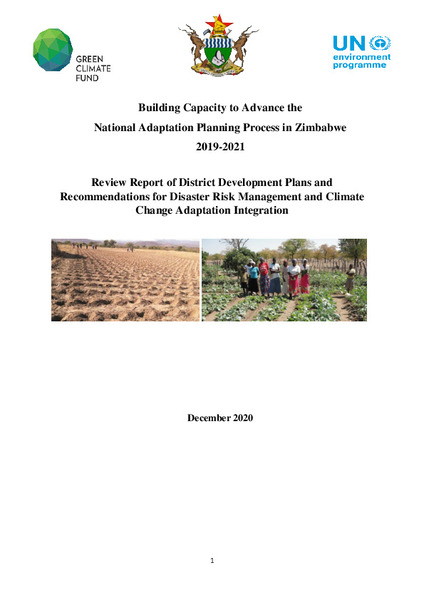| dc.contributor | Climate Change Division | en_US |
| dc.contributor.author | United Nations Environment Programme | en_US |
| dc.coverage.spatial | Zimbabwe | en_US |
| dc.date.accessioned | 2024-03-26T12:21:41Z | |
| dc.date.available | 2024-03-26T12:21:41Z | |
| dc.date.issued | 2020-12 | |
| dc.identifier.uri | https://wedocs.unep.org/20.500.11822/45259 | |
| dc.description | Climate change is a cross-cutting issue that has implications across development sectors. As a result, mainstreaming climate change into development plans is likely to be more successful than addressing it in isolation through sectoral climate change policies or plans. Ensuring that climate change is considered in integrated districts development planning has two benefits.
First, it ensures that development gains will not be undermined by climate risk. Second, it offers the opportunity to build adaptive capacity and resilience in the face of climate change, so that the risk of future adverse impacts is minimised. | en_US |
| dc.description.uri | https://www.unep.org/explore-topics/climate-action/what-we-do/climate-adaptation | en_US |
| dc.format | pdf | en_US |
| dc.language | English | en_US |
| dc.rights | Public | en_US |
| dc.subject | disaster risk | en_US |
| dc.subject | climate change adaptation | en_US |
| dc.title | Review Report of District Development Plans and Recommendations for Disaster Risk Management and Climate Change Adaptation Integration | en_US |


